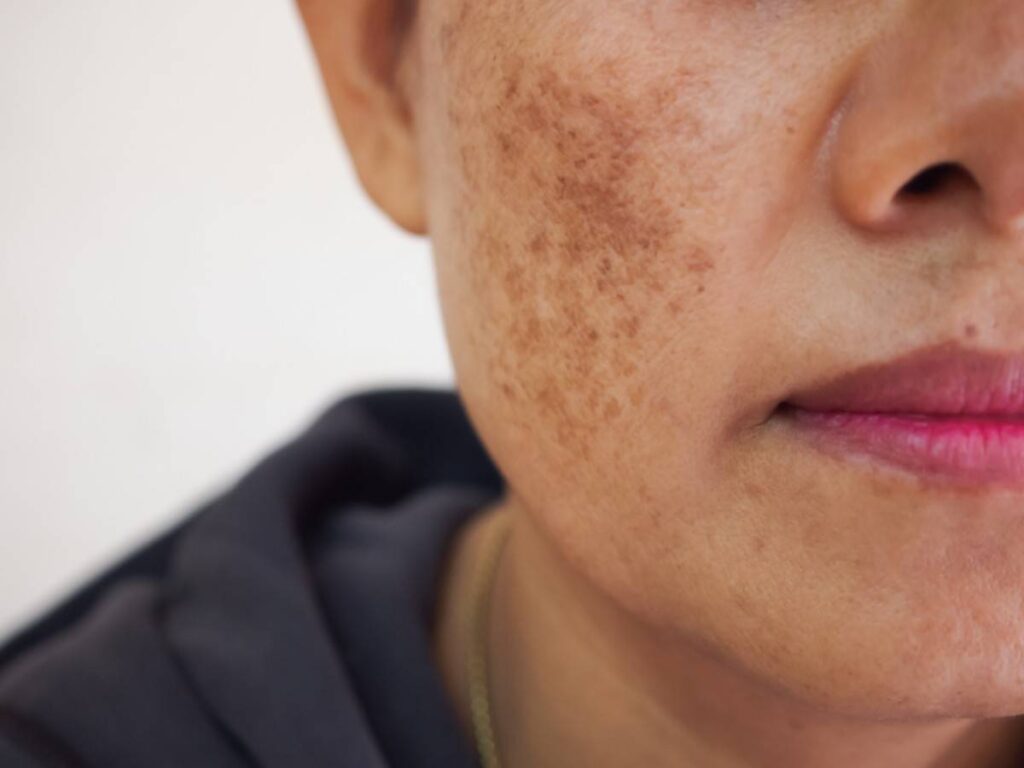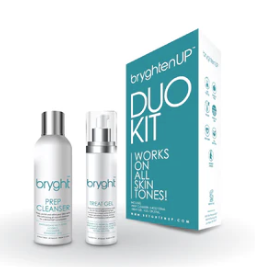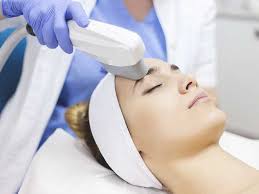How to Treat Hyperpigmentation
July 26, 2024
Hyperpigmentation and skin discoloration can be challenging to manage, but understanding how to treat hyperpigmentation is the first step toward achieving a clearer, more even complexion. This comprehensive guide covers everything from what hyperpigmentation is to the most effective treatments and prevention tips.
What is Hyperpigmentation?

Hyperpigmentation is a common skin condition characterized by patches of skin that become darker than the surrounding areas. This occurs when excess melanin, the pigment responsible for skin color, forms deposits in the skin. It can affect people of all skin tones but is particularly noticeable in those with darker skin tones.
There are several types of hyperpigmentation, including:
- Post-inflammatory hyperpigmentation (PIH): This type occurs after an injury or inflammation to the skin, such as acne, eczema, or contact dermatitis. It leaves dark spots that can take months to fade.
- Age spots (liver spots): These are small, dark patches usually caused by prolonged sun exposure. They are common among older adults.
- Melasma: Often triggered by hormonal changes, such as during pregnancy or from birth control pills, melasma appears as large patches of dark skin.
Understanding what hyperpigmentation is helps in identifying the right treatment options and setting realistic expectations.
What Causes Skin Discoloration and Hyperpigmentation?
Several factors contribute to skin discoloration and hyperpigmentation, including:
- Sun Exposure: Ultraviolet (UV) rays from the sun can trigger an increase in melanin production, leading to dark patches.
- Hormonal Changes: Conditions like pregnancy or the use of birth control pills can cause melasma due to hormonal fluctuations.
- Inflammation: Skin injuries from acne, eczema, or other conditions can leave behind dark spots, known as post-inflammatory hyperpigmentation.
- Medical Conditions: Certain diseases and conditions, such as Addison’s disease or hemochromatosis, can cause skin discoloration.
- Medications: Some medications can increase skin sensitivity to the sun, resulting in hyperpigmentation.
- Age: As the skin ages, it becomes more prone to discoloration, including age spots.
By understanding the underlying causes, you can take proactive steps to prevent and treat skin discoloration effectively.
Treatments for Hyperpigmentation and Skin Discoloration
Treating hyperpigmentation and skin discoloration involves a combination of skincare routines, medical treatments, and lifestyle adjustments. Here are some of the most effective options:
Lightening Creams

Lightening creams are topical treatments that help reduce the appearance of dark spots. They often contain ingredients like hydroquinone, kojic acid, vitamin C, or niacinamide. These ingredients work by inhibiting melanin production and promoting an even skin tone. It’s important to use these creams under the guidance of a dermatologist to avoid potential side effects like skin irritation.
Microdermabrasion
Microdermabrasion is a minimally invasive procedure that exfoliates the top layer of the skin. It helps remove dead skin cells and stimulates collagen production, leading to a more even skin tone. This treatment is effective for mild hyperpigmentation and can be combined with other treatments for better results.
Intense Pulse Light (IPL) Therapy

IPL therapy uses broad-spectrum light to target and break down melanin deposits in the skin. It’s effective for treating age spots, sun damage, and other types of hyperpigmentation. Multiple sessions are often required for optimal results. IPL therapy also helps reduce the appearance of blood vessels and other skin imperfections.
Retinoids
Retinoids, derived from vitamin A, are commonly used in skin care to promote cell turnover and reduce the appearance of dark spots. They are available in both prescription and over-the-counter formulations. Retinoids can cause skin sensitivity, so it’s crucial to use them as directed and combine them with sun protection measures.
Laser Treatment or Chemical Peel
Laser treatments and chemical peels are more intensive options for treating hyperpigmentation. Laser treatments, such as fractional lasers, target melanin deposits with focused light energy, breaking them down and promoting an even skin tone. Chemical peels involve applying a solution to the skin that causes the top layer to peel off, revealing fresher, less pigmented skin underneath.
These treatments should be performed by trained professionals to minimize risks and ensure the best results.
How to Prevent Future Discoloration and Hyperpigmentation
Prevention for how to treat hyperpigmentation and skin discoloration involves consistent skincare and protective measures:
- Sun Protection: Regular use of broad-spectrum sunscreen with an SPF of 30 or higher is crucial. Reapply every two hours and after swimming or sweating. Wear protective clothing and seek shade when the sun’s rays are strongest.
- Avoid Picking at the Skin: Picking at acne, scabs, or other skin lesions can lead to post-inflammatory hyperpigmentation. Allow wounds to heal naturally.
- Use Gentle Skincare Products: Harsh products can irritate the skin and lead to inflammation and discoloration. Opt for gentle cleansers, moisturizers, and treatments.
- Incorporate Antioxidants: Skincare products with antioxidants like vitamin C and E can help protect the skin from oxidative damage and reduce the risk of hyperpigmentation.
- Regular Exfoliation: Gentle exfoliation helps remove dead skin cells and promotes a more even skin tone. Use products with alpha hydroxy acids (AHAs) or beta hydroxy acids (BHAs) for best results.
Conclusion
Knowing how to treat hyperpigmentation and skin discoloration is essential for achieving and maintaining a clear, even complexion. Whether you opt for topical treatments, professional procedures, or preventive measures, a consistent and informed approach is key. Always consult with a dermatologist to determine the best treatment plan tailored to your specific skin type and condition. By combining the right treatments and preventative strategies, you can effectively manage hyperpigmentation and enjoy healthier, more radiant skin.
For more skincare tips and advice, check out our related articles on how to prepare for a Brazilian wax, how to exfoliate your skin and face, and browse our online shop for the best exfoliation products.